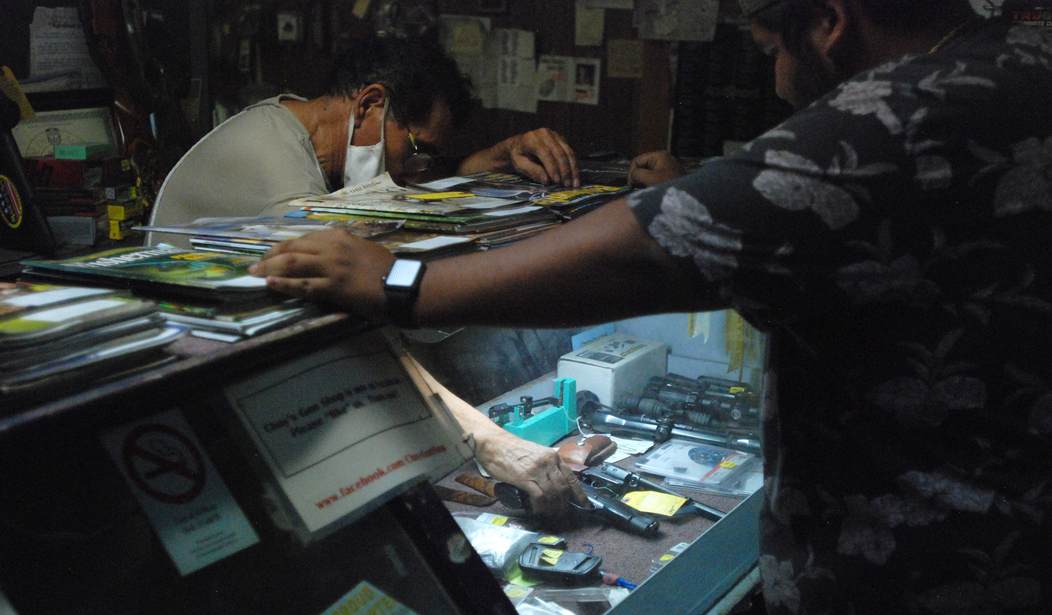Wyoming may very well have the most Second Amendment-friendly legislature in the country right now, but even some reliable champions of the right to keep and bear arms are expressing some reservations about a bill hitting the House floor that seeks to increase the safeguards around gun owner privacy and the use of Merchant Category Codes for firearm and ammunition sales.
The concerns over HB 234 aren't philosophical in nature. In fact, almost every member of the House Judiciary Committee is on board with the idea of blocking the use of gun-store specific MCC's. Instead, there are some specific provisions in the legislation that have some lawmakers worried about unintended consequences.
HB 234 would change “may” to “shall” in calling for the Attorney General’s Office to investigate allegations purchases for firearms, firearms accessories and ammunition are being tracked.
... Committee Chairman Rep. Art Washut, R-Casper, along with others, raised concern about the “shall” requirement putting an undue burden on the Attorney General’s Office.
The office recently lost two positions, and requiring it to investigate every allegation of credit card purchase code tracking could overwhelm the AG’s staff, he said.
Committee member Rep. Jayme Lien, a co-sponsor of HB 234, said the Attorney General’s Office works for the people of Wyoming, and it’s important to push back against federal overreach.
Washut and others said that if the HB 234 passes into law, the office might need more money to meet the demand.
“Sometimes it’s not a matter of willingness, it’s a matter of logistics and reality of what you have for staff at the office to take care of things,” he said.
[Rep. Ken] Chestek [D-Laramie] said the bill amounts to an “unfunded mandate” for the Attorney General’s office.
While the AG's office could theoretically be tasked with investigating a large number of complains involving the use of MCC's, I doubt it's going to be much of an issue. First, the use of these codes is already prohibited under Wyoming law, and I doubt that gun stores and FFLs would voluntarily adopt their use. There's a slightly bigger concern over financial institutions mandating the use of these codes, but since credit card companies don't have to use any particular MCC, I suspect that Visa, Mastercard, and other credit card companies will choose to abide by Wyoming law.
Still, Wyoming Bankers Association President and CEO Scott Meier expressed his own concern about HB 234 to the Judiciary Committee.
Purchase code tracking “has not had a lot of impact on us, because we don’t have anything to do with that,” he said. “We don’t assign the codes, we don’t look at the codes, we don’t know what the codes are, we don’t get a report.”
Meier told the committee that he has misgivings about a provision in HB 234 allowing people to file civil lawsuits. That is, if they think their gun purchase codes are being tracked, but the Wyoming Attorney General’s office didn’t investigate such allegation in a timely manner.
That could leave banks vulnerable to people making threats to file lawsuits, which in turn could force financial institutions to offer settlements, which Meier said would amount to “legalized extortion.”
If HB 234 becomes law that's something to keep an eye on, but again, I suspect that Meier's concern is generally unfounded, and the majority of the House Judiciary Committee appears to agree with that assessment. A proposed amendment to remove the provision allowing civil litigation failed, and HB 234 itself was approved by almost every member of the committee. Democrat Rep. Chestek was the lone lawmaker to vote against the measure, which is now headed to the House floor despite the hesitation from some lawmakers about tasking the AG's office with more work.
HB 234 is meant as a preventative measure, and the investigatory and litigation aspects of the bill will only come into play if companies decide to violate the law. Those provisions can always be tweaked if necessary (increasing funding for the Attorney General, for instance), but they shouldn't derail the legislation completely, and hopefully HB 234 will soon be signed by Gov. Mark Gordon.









Join the conversation as a VIP Member